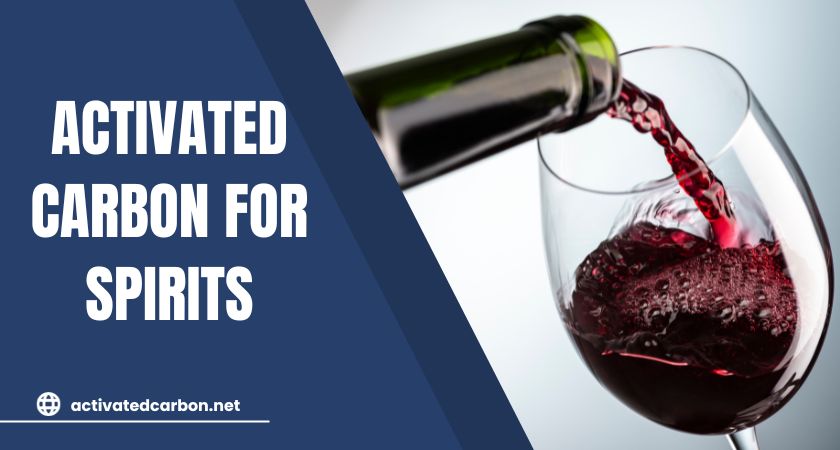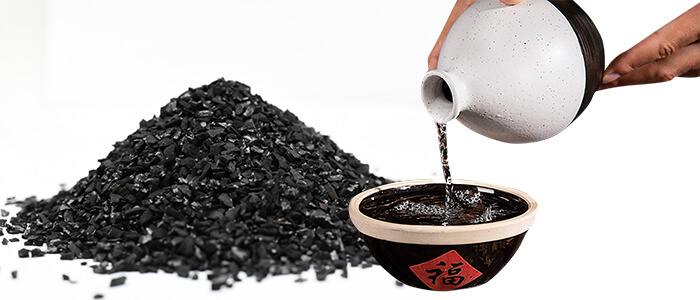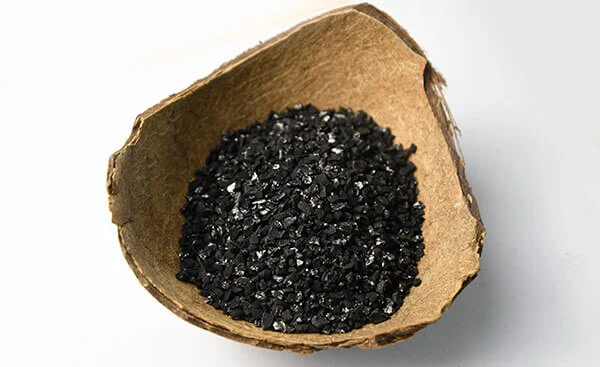
Friends who enjoy drinking can tell if liquor is good with just one sip, but did you know that the production of wine also involves activated carbon? Activated carbon for spirits is widely used in the brewing industry. It can enhance the purity of the liquor, purify impurities, and eliminate off-flavors.
This article will focus on the application of activated carbon in the production of spirits. Let’s explore together!
Advantages of Activated Carbon in Spirit Treatment
Activated carbon, as a porous material with a high surface area and well-developed porosity, exhibits strong adsorption capabilities, allowing it to capture compounds present in liquids.
This is achieved by adhering them to the surface through adsorption. In the production process of distilleries, especially after distillation, liquor may exhibit undesirable color, aroma, and taste. The extensive pore structure and powerful adsorption capacity of activated carbon can capture these impurities.
The pore size of activated carbon ranges from 1.5nm to 5um, with micropores (less than 2nm), macropores (larger than 50nm), and mesopores (2-50nm). It is these well-developed pore structures that contribute to the excellent adsorption performance of activated carbon. It can efficiently remove pigments and impurities from base spirits, thereby enhancing the quality and improving the flavor of the spirit.
What Type of Activated Carbon is Used for Spirits Treatment?
When discussing the purification of spirits, it is crucial to recognize that the treatment methods vary for liquor with different alcohol concentrations. In summary, understanding these differences helps us choose the appropriate activated carbon to ensure that each type of beverage can showcase its unique flavor and quality. The following are some commonly used types of activated carbon.
- Coconut Shell Activated Carbon and Molecular Sieves
These types of activated carbon are mainly used for the purification of high and medium-alcohol spirits, accelerating the aging of liquor and reducing the off-flavors in new spirits. Purified medium to high-alcohol liquor no longer appears cloudy at low temperatures.
- Granular Activated Carbon for Liquor
Typically prepared from coconut shells, this activated carbon is mainly used for the treatment of high, medium, and low-alcohol base spirits. It efficiently adsorbs off-flavors in base spirits, providing excellent deodorizing effects on alcohol.
- Powdered Activated Carbon for Liquor
This type of activated carbon is primarily used for clarifying, aging, and maturing low-alcohol liquor. It removes off-flavors in alcohol and high-alcohol liquor, preventing low-alcohol liquor from becoming cloudy at low temperatures.
Do you plan to purchase activated carbon?
What Can Activated Carbon Remove?

- Adsorb unpleasant odors, accelerating the aging of liquor
Unpleasant odors in spirits mainly result from improper control during the brewing process, improper handling of raw materials, or newly distilled liquor. - Remove off-flavors and undesirable bitterness
Various processes during the production of liquor can impart a slightly bitter taste, significantly affecting the taste of the beverage. - Eliminate undesirable pigments
During the brewing or storage process, factors such as light, oxygen, and microorganisms can induce chemical changes, resulting in undesirable colors in the beverage, such as brown or yellow, affecting the appearance and quality of the spirit. - Adsorb impurities
In the production of low-alcohol liquor, the solubility of high-grade fatty acid ethyl esters and high-grade fatty acid alcohols decreases, causing the spirit to appear milky.
Our Offered Activated Carbon
In order to effectively enhance the purity of the liquor and purify impurities, choosing the appropriate activated carbon is crucial. This type of activated carbon needs to possess high iodine value, low ash content, and other properties.
Zhulin activated carbon can remove aflatoxin and ochratoxin A in the liquor, complying with relevant regulations. Zhulin activated carbon filtration can improve the color and taste of beer and wine.
For different needs in the treatment of various types of spirits, we provide both granular and powdered activated carbon. The following are some product parameters for reference:

Coconut Granular Activated Carbon
- Particle Size(mesh): 4×6, 8×16, 100, 200
- Iodine Value(mg/g): 800-1200
- Ash: 3%(max)
- Hardness: 98%(min)

Powdered Activated Carbon
- Particle Size(mesh): 100, 200, 325(custom sizes)
- Methylene Blue Value(mg/g): 150-260
- Ash: 7%(max)
- Hardness: 95%(min)
Do you plan to purchase activated carbon?
Final Thoughts
In conclusion, leveraging the unique capabilities of activated carbon can enhance purity, purify impurities, remove off-flavors, and create a soft and delicate taste in spirits. We can adjust the pore size distribution of activated carbon based on the different quality and processing techniques of distilleries, selecting for efficient removal of excess substances, odors, and impurities, meeting the diverse needs of customers.
If you have any specific requirements or questions in this regard, please feel free to contact us. We are committed to providing you with the most professional solutions.